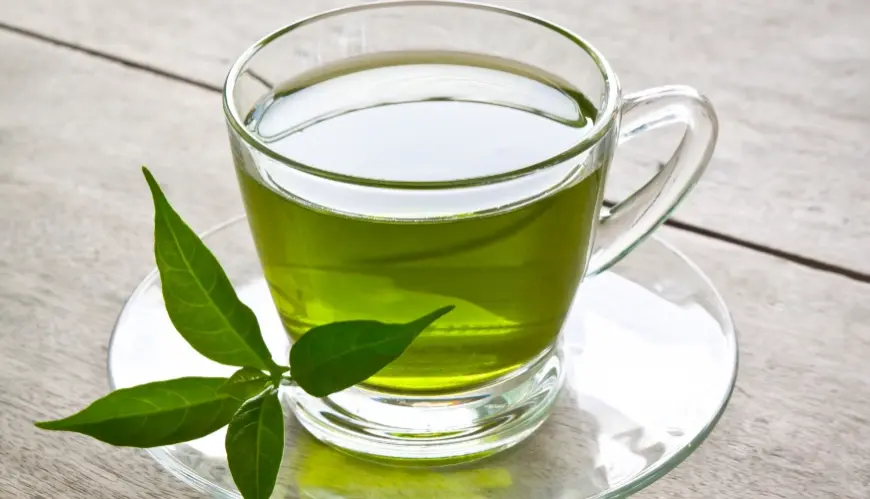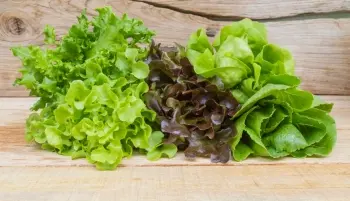With an abundance of health benefits, the idea of refraining from green tea consumption might be puzzling when suggested by your physician in relation to certain treatments or preceding surgical procedures.
It seems that distinct elements found in green tea may adversely interact with particular medication varieties. Moreover, certain pharmaceuticals can amplify the impact triggered by caffeine commonly present in green tea.
This content will shed light on the components composing green tea, identify those advised not to enjoy this beverage and explain how this drink cross-reacts with specific medications and supplements.
Alert
Be sure to consult your healthcare provider about the compatibility of green tea with any prescribed drugs. This ensures you get professional advice on potential adverse effects or drug reactions before commencement of the medication.
So, What Exactly is Inside Green Tea?
Green tea originates from the foliage of the Camellia sinensis shrub. It can be purchased in various shapes and sizes, including but not limited to fluid extracts, pill capsules, teabags and powdered form. The key active constituents present in green tea are polyphenols – essentially natural chemicals found within plant matter - featuring epigallocatechin gallate, along with theaflavins and thearubigins as per information given by University of Rochester Medical Center (URMC).
In addition to this, green tea boasts a mix tannins and catechins: these are also polyphenols known for their antioxidant qualities according to URMC. Antioxidants originate mostly from fruit and vegetable sources; they support cellular health by neutralizing free radical damage which could potentially lead to conditions such as heart disease or cancer following data provided by Mayo Clinic. Simply put, consuming green tea promotes longevity.
Caffeine also features prominently amongst its ingredients. Depending on brand choice one 8 ounce cup may contain between 20 -50 milligrams of caffeine based on evidence collected from Center for Science in the Public Interest.
Drugs That May Have Adverse Interactions With Green Tea
Certain types of drugs can have a negative interaction with the caffeine and polyphenols found in green tea. Some may cause only a benign interaction, however others could lead to severe health issues. Therefore, you should always consult your healthcare provider before consuming green tea alongside any new medication.
Below are few examples of medications that might adversely interact with green tea:
1. Anticoagulants
Individuals who consume anticoagulant drugs, also referred to as blood thinners, such as Warfarin are cautioned against the intake of green tea according to Mount Sinai. The presence of vitamin K in this beverage can potentially render these medications ineffective. Furthermore, other elements present in the tea might exaggerate the medical products' ability to thin blood which could pose risks.
2. Statins
Statins are a class of medications designed to lower the levels of low-density lipoprotein (LDL, or "bad" cholesterol) in your bloodstream, as noted by the NHS.
According to a study published in June 2020 in the European Journal of Drug Metabolism and Pharmacokinetics, green tea consumption may impede the absorption of specific statin medicines like Lipitor (Atorvastatin).
Other cardiovascular drugs can also be affected by green tea. For instance, an April 2018 review article in The Journal of Food and Drug Analysis pointed out that EGCG (an ingredient found in green tea) might reduce rosuvastatin concentration observed amongst volunteers involved in one research. Furthermore, the same report showed that green tea extract amplified sildenafil's concentration while increasing drug levels for tacroliumus administered to a patient who had received kidney transplantation.
Additional investigation is needed to validate these observations regarding how consuming green tea influences statin effects absolutely.
3. Aspirin
As per the details shared by Mount Sinai, both aspirin and some chemicals present in green tea hold the potential to hinder blood clotting process. When consumed simultaneously, they can enhance the probability of bleeding incidents.
4. Acetaminophen
According to Mount Sinai, green tea, particularly if it's caffeinated, has the potential to interfere with various medications. This includes acetaminophen, commonly known as Tylenol.
Consumption of acetaminophen in excess or alongside alcohol can result in liver damage according to the FDA. Additionally, there are experimental indications that catechin, an ingredient found in green tea extract might add to hepatoxicity (drug-induced harm to the liver), based on information from the National Library of Medicine. However, this link requires more scientific research for validation.
Moreover, methotrexate - a drug used for rheumatoid arthritis treatment has been listed by Mount Sinai as potentially having adverse interactions with caffeinated green tea. Before adding any caffeinated beverages into your diet while using these prescriptions you should first have a discussion with your medical professional.
5. Interaction with Contraceptive Pills
You may find it surprising, but green tea can have an effect on birth control pills due to its caffeine content.
Interestingly enough, oral contraceptives may extend the duration of caffeine's presence in your body. This could amplify its stimulation effects, according to Mount Sinai.
Thus, you don't necessarily need to refute green tea entirely while using birth control; however, you might consider reducing the volume you drink and being conscious of when you consume it (we will discuss this shortly).
6. Phenylpropanolamine
Phenylpropanolamine was once a widely utilized component in cold medications and certain diet aids. However, it is currently categorized as "not generally recognized as safe and effective" by the FDA, due to its minuscule potential for inducing hemorrhagic stroke.
In combination with the caffeine present in green tea, phenylpropanolamine could result in an alarming elevation of blood pressure or even manic episodes within some individuals, according to Mount Sinai's findings.
Although most therapeutics that contained phenylpropanolamine have undergone reformulation to exclude this ingredient, Mount Sinai advises that it's prudent to scrutinize your cold medicine packaging or any appetite suppressant supplements you might be using.
7. Specific Medications for Mental Health
Green tea has the potential to lessen the amount of lithium in the bloodstream of individuals who use this drug for conditions such as mania or bipolar disorder, according to Linus Pauling Institute at Oregon State University. Discontinuing green tea consumption suddenly while using lithium could result in a sharp rise in one's lithium levels.
The caffeine contained in green tea might also decrease the calming effects of certain benzodiazepines used to treat anxiety, like Valium and Ativan, notes Mount Sinai.
Moreover, drinking green tea with monoamine oxidase inhibitors (MAOIs) - a particular type of medication used to treat depression - may trigger an unusual rise in blood pressure potentially leading to a "hypertensive crisis," warns Mount Sinai. Some examples of these medications include Marplan and Nardil.
Due to its mild stimulative properties, it is advisable not take green tea along with other stimulants - say Adderall utilized for ADHD management - recommends URMC.
8. Medications for Weight Reduction
Previously, Ephedra (or ephedrine) was a common ingredient in weight-loss aides. Nonetheless, the FDA decided to banish its use in dietary supplements since 2004 due to its significant threat of sickness as documented by the National Institutes of Health. Despite this ruling in the U.S., it still exists elsewhere, according to Mount Sinai.
Combining ephedra and caffeine could elevate your chances of facing severe side effects such as abnormal heartbeat or raised tension levels, Mount Sinai reports. Ignoring these dangers may lead you down a path where you stumble upon a weight-reduction formula that contains ephedra. Pairing that with caffeinated substances like green tea might then result in nervousness, body shaking and unregulated loss of weight.
As per URMC's suggestion, products with stimulants such as green tea should not be taken together with other similar items which sometimes might also include components found in medications designed for losing weight.
9. Specific Antibiotics
Consumption of green tea may potentially enhance the effectiveness of a category of antibiotics known as quinolone antibiotics; these are utilized for numerous bacterial infections. However, it's important to note that it could also increase the chances of experiencing side effects when consuming them, according to Mount Sinai. It is always recommended you consult with your doctor prior to using caffeine while on a course of these kind of antibiotics, in order to prevent any adverse interaction.
Examples within this class include:
- Ciprofloxacin (Cipro)
- Enoxacin (Penetrex)
- Grepafloxacin (Raxar)
- Norfloxacin (Chibroxin, Noroxin)
- Sparfloxacin (Zagam)
- Trovafloxacin (Trovan)
(Mount Sinai further elaborates)
10. Interactions of Beta Blockers and ACE Inhibitors with Green Tea
Green tea's caffeine may escalate blood pressure in individuals who are on beta blockers for managing hypertensive conditions or cardiovascular diseases, according to Mount Sinai Hospital. Medications such as propranolol and metoprolol fall under this group.
A pint-sized study conducted in March 2021, mentioned in Clinical and Translational Science journal demonstrates that green tea intake might decrease the assimilation and potency of lisinopril, an ACE inhibitor prescribed for lowering blood pressure.
11. Interactions between Iron, Folic Acid and Green Tea
Consult with your healthcare provider if you're considering pairing green tea with iron supplements. According to the Memorial Sloan Kettering Cancer Center, green tea's interaction with iron could impact its absorption in your system. The Oregon State University's Linus Pauling Institute mentions that teas' flavonoids may bind themselves to nonheme iron, restricting its absorbance within the intestines.
Moreover, caffeine can potentially impede folic acid absorption and decrease circulating levels of this significant nutrient — particularly evident among pregnant individuals based on an observational study published in October 2018 by the Journal of Epidemiology.
12. Specific Herbs
Although online information might be scarce, traces of evidence suggest that the intake of caffeine together with bitter orange extract has potential to hike blood pressure and pulse rate, as indicated by the National Center for Complementary and Integrative Health.
Communicate with your medical professional about any herbal products or natural additives you are currently ingesting. They can guide you appropriately on whether it is safe to consume green tea in combination with these elements.
Can Green Tea interact with Metformin?
There doesn't seem to be any trustworthy proof indicating that metformin, a frequently prescribed diabetes drug, has adverse interferences with green tea's caffeine content.
However, it is noteworthy that several large-scale prospective cohort studies have linked the consumption of tea to a lower risk of developing type 2 diabetes. Increased research efforts are needed to further delve into this potentially significant correlation. This statement comes from Linus Pauling Institute at Oregon State University.
Remember, though some individuals suffering from diabetes can consume caffeine without experiencing alterations in their blood sugar levels; others might observe sudden escalations or drops post-ingestion as per The Mayo Clinic.
If you're unsure about combining green tea and metformin in your routine, consult your healthcare provider who would be better positioned to provide nerve-calming guidance.
When Can You Consume Green Tea After Medication?
There's no established consensus among medical professionals regarding how soon after medication you can consume green tea.
How long to delay drinking green tea is largely dependent on the type of drug consumed. For those on anticoagulants or lithium, it might be in your best interest to refrain from ingesting green tea as it can either decrease or dangerously amplify the efficacy of these medications.
For further guidance about when precisely to drink green tea (or indeed any caffeine-laden beverage) following medication intake, consider discussing with your physician. Your doctor would be best equipped to provide advice tailored specifically for you and your prescribed drugs.
Who Is Advised Against Consuming Green Tea?
Apart from those individuals taking certain prescribed medications, there are several specific categories of individuals who should refrain from drinking green tea. According to Mount Sinai, some of these groups are:
- Expectant mothers
- People who breastfeed or chestfeed
- Juveniles
- Individuals with renal disorders
- Those suffering from cardiac issues
- Persons grappling with stomach ulcers
- People experiencing liver complications
Furthermore, if you suffer from the following medical conditions, it's advised that you consult your healthcare provider before incorporating green tea into your diet. The health conditions according to Mount Sinai include:
- Glaucoma sufferers,
- Anemia patients,
- Osteoporosis endurers,
- Diabetics.
In Conclusion
Green tea, which is packed with antioxidants, has the potential to enhance your general wellbeing. However, it's important to be aware that certain constituents in green tea - such as caffeine, vitamins and polyphenols - might induce unsavoury side effects or interactions if you're on specific medications or are dealing with particular health conditions.
You should discuss with your physician whether it would be prudent for you to refrain from drinking green tea or modify when (or how often) you consume it.
Frequently Asked Questions
What are the outcomes if I consume green tea daily?
Should you choose to drink green tea on a consistent, daily basis, it could potentially have a beneficial impact on your overall health. Nevertheless, this depends upon whether or not you're taking any medications (or possess any health conditions) that may produce harmful reactions when mixed with the beverage. The ample antioxidants found in green tea--flavonoids being one of them--can play a significant role in improving heart health by reducing cholesterol levels, lowering blood pressure and bringing down triglyceride levels. Additionally, there is potential for decreased risk regarding certain types of cancer due to regular consumption of green tea. It has been praised as an effective beverage at combating inflammation given its anti-inflammatory properties; a statement supported by Penn Medicine.
Does Green Tea Act as a Diuretic?
Though not typically marketed specifically as a diuretic, green tea does exhibit mild diuresis (a reduction of fluid accumulation in the body), according to the URMC. Practices in traditional Chinese and Indian medicine have also employed green tea for its diuretic properties, sources from Mount Sinai confirm. If you are dealing with water retention or excessive bodily fluids, consulting your doctor about including green tea in your regimen can be advantageous.
In case of an emergency? If you're encountering severe health symptoms, it's advisable that you consult National Library of Medicine's list indicating when immediate medical help is needed or make an urgent call to 911.




